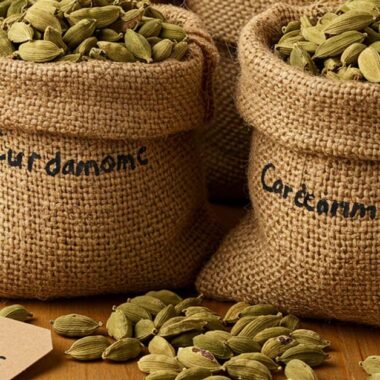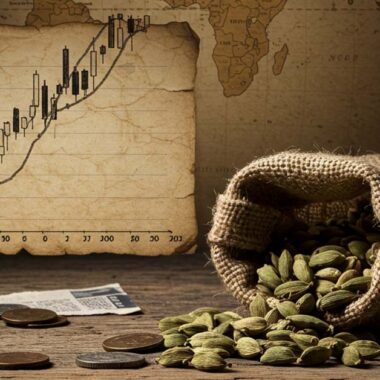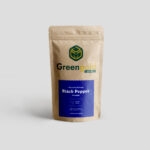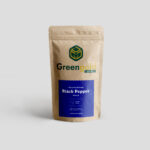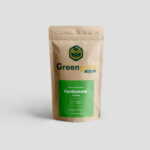Organic cardamom is often priced higher than conventionally grown varieties, and for good reason. Consumers seeking chemical-free, sustainably grown spices pay a premium for quality, purity, and ethical farming practices. But what makes organic cardamom more expensive? Let’s break it down!
✅ 1. Organic Farming is More Labor-Intensive 🚜
Unlike conventional farming, organic cultivation requires manual labor at every stage.
👨🌾 Labor-intensive tasks include:
✔️ Weeding by hand instead of using chemical herbicides
✔️ Natural pest control methods (like neem oil, traps, and companion planting)
✔️ Organic composting & soil management require careful preparation
💡 Tip: Since organic farms avoid synthetic chemicals, farmers rely on manual intervention, increasing labor costs.
🌿 2. Organic Certification Costs 📜
Getting certified organic is expensive and requires strict compliance with regulations.
🔍 Certification expenses include:
✔️ Application & inspection fees from recognized certifiers
✔️ Annual renewal costs for maintaining organic status
✔️ Soil & residue testing to verify purity
✔️ Record-keeping & compliance audits
💡 Fact: In India, NPOP certification costs ₹15,000-₹75,000 per farm, while USDA & EU Organic certifications are even higher.
🌱 3. Longer Growth & Maturity Time ⏳
Organic cardamom plants grow naturally without artificial growth boosters, meaning:
📈 Organic farming takes longer because:
✔️ Plants develop at their natural pace
✔️ No chemical fertilizers to force fast growth
✔️ Healthy soil management takes time but improves long-term yield
💡 Tip: Slower growth = better quality but higher costs due to extended care & maintenance.
🦠 4. Limited Yield Compared to Conventional Farming 📉
Chemical fertilizers and pesticides increase yields, but organic farming prioritizes soil health over maximum production.
📌 Yield comparison:
🔹 Conventional farms: Higher yields due to synthetic fertilizers
🔹 Organic farms: Yields can be 20-30% lower due to natural growing methods
💡 Fact: Since organic cardamom farms produce less per acre, farmers must charge more to make up for the difference.
🌍 5. Sustainable Soil & Water Management 🌊
Organic farmers invest more in maintaining soil fertility through:
✔️ Organic compost & green manure 🌱
✔️ Crop rotation & agroforestry to restore soil nutrients
✔️ Rainwater harvesting & irrigation efficiency
💡 Tip: These eco-friendly practices increase long-term productivity, but require higher upfront costs.
🛡️ 6. Natural Pest & Disease Control (No Pesticides) 🐜
Organic cardamom farmers cannot use chemical pesticides, so they rely on:
🦠 Natural pest control methods:
✔️ Neem oil & botanical sprays
✔️ Companion planting (like lemongrass to repel insects)
✔️ Biological predators (ladybugs, parasitic wasps)
💡 Fact: Organic pest control is less effective than synthetic pesticides, requiring more frequent application & higher costs.
🌎 7. Export Regulations & Strict Quality Standards 🏷️
To sell in premium international markets (EU, USA, Japan), organic cardamom must meet strict regulations.
📌 Export challenges:
✔️ Residue-free testing for chemical contamination
✔️ Batch-wise certification & traceability for authenticity
✔️ Higher shipping & handling costs for organic storage
💡 Tip: Meeting these global standards increases costs, but ensures higher prices for premium-quality organic cardamom.
🔄 8. Post-Harvest Processing Without Chemicals 🏭
Conventional cardamom is sometimes fumigated or chemically treated for preservation. Organic cardamom, however, must follow natural drying & processing methods.
📌 Organic post-harvest processes include:
✔️ Sun-drying or controlled natural drying ☀️
✔️ No synthetic preservatives or color-enhancers
✔️ Strict packaging & storage to prevent contamination
💡 Tip: Extra care in processing & storage adds to costs but ensures pure, high-quality cardamom.
🛒 9. Limited Supply, High Demand 📈
Since organic cardamom production is low, but consumer demand is high, prices naturally increase.
🌍 Factors driving demand:
✔️ More people switching to organic diets
✔️ Increasing awareness about chemical-free spices
✔️ Growth of premium organic markets & exports
💡 Tip: Scarcity + high demand = premium pricing!
🎯 Final Thoughts: Is Organic Cardamom Worth It?
Absolutely! While organic cardamom is more expensive, it offers:
🔹 Better taste & aroma 🌿
🔹 Healthier, chemical-free spice 🍵
🔹 Eco-friendly & sustainable farming support 🌏
🔹 Higher nutritional value & purity
For those who value quality over quantity, organic cardamom is the best choice! 🌱
👉 Buy 100% Organic Cardamom Here: Greengold Guide – Shop Now 🛒💚

